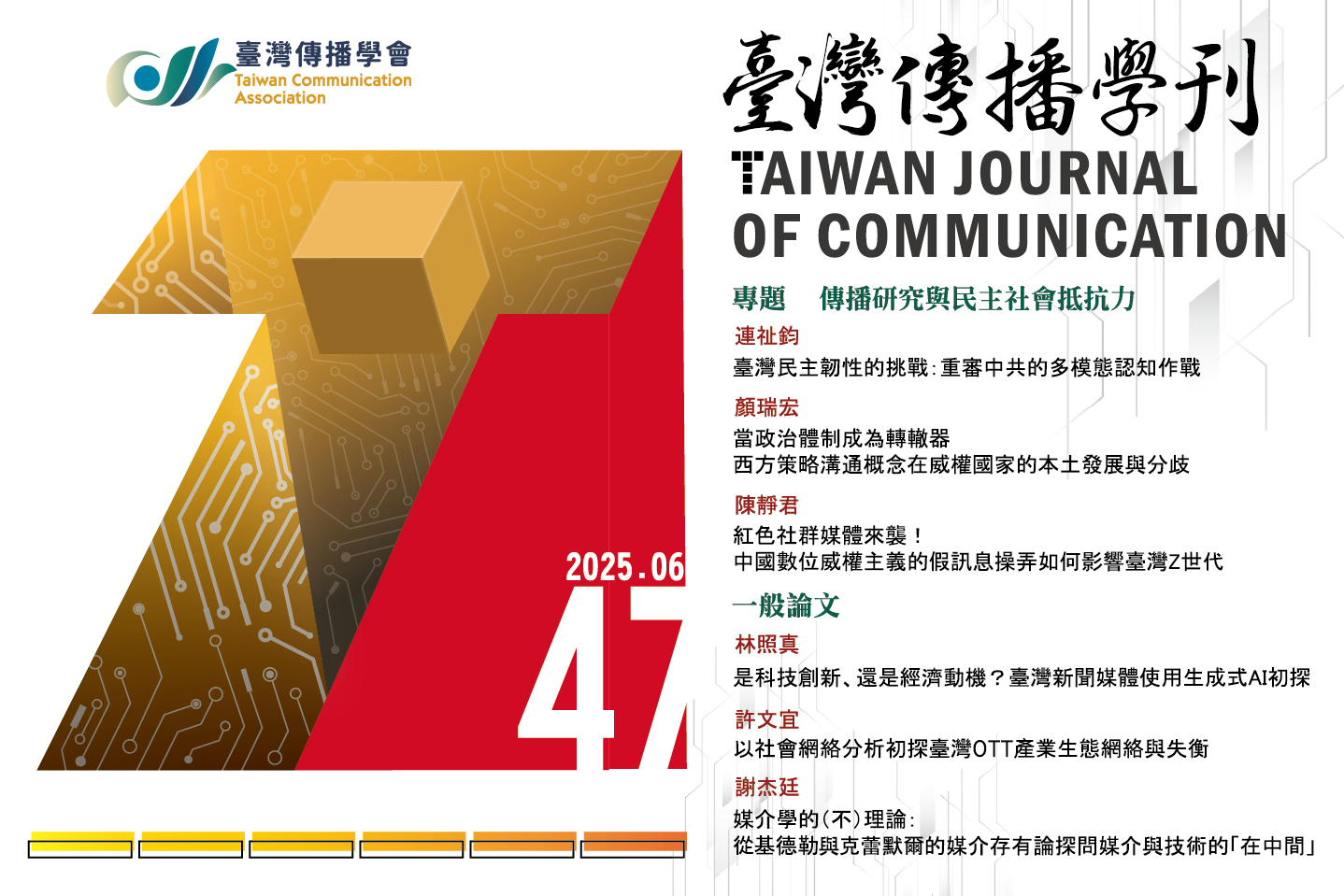 閱覽人數: 2993
閱覽人數: 2993
June
2025
No. 47
傳播研究與民主社會抵抗力
Communication research and the resistance of democratic societies頁數:111 - 149
作者(中)
陳靜君、鄭中堂
作者(英)
Ching-Chun Chen & Chung-Tang Cheng
關鍵詞(中)
Z世代、中國社群媒體、中國假訊息判斷力、兩岸用語判斷力、政治知識、預測編碼理論
關鍵詞(英)
Generation Z, Chinese social media, Chinese disinformation, cross-strait terminology, political knowledge, predictive coding theory
中文摘要
因應中國社群媒體的爭議,本研究以臺灣Z世代為研究對象,採用預測編碼理論,探討中國社群媒體使用如何透過認知機制影響臺灣Z世代判斷中國假訊息的真偽。採用網路調查法(N = 700),研究發現臺灣Z世代越常使用抖音/TikTok、小紅書、微博等中國社群媒體,則兩岸議題政治知識和兩岸用語判斷力越低;其次,越常使用中國社群媒體,會透過兩岸議題政治知識降低與兩岸用語判斷力降低的中介效果,進而降低對中國假訊息的判斷力。
英文摘要
This study explored the use patterns of digital platforms among Generation Z in Taiwan in the context of ongoing controversies surrounding Chinese social media. Predictive coding theory was applied to determine how the use of Chinese social media platforms influences the cognitive mechanisms through which Generation Z in Taiwan evaluates the authenticity of Chinese disinformation. An online survey (N = 700) revealed that frequent use of Chinese social media platforms, such as Douyin/TikTok, Xiaohongshu, and Weibo, was associated with reduced political knowledge regarding cross-strait concerns and a reduced ability to discern cross-strait terminology. These effects in turn reduced the respondents’ ability to evaluate the authenticity of Chinese disinformation.